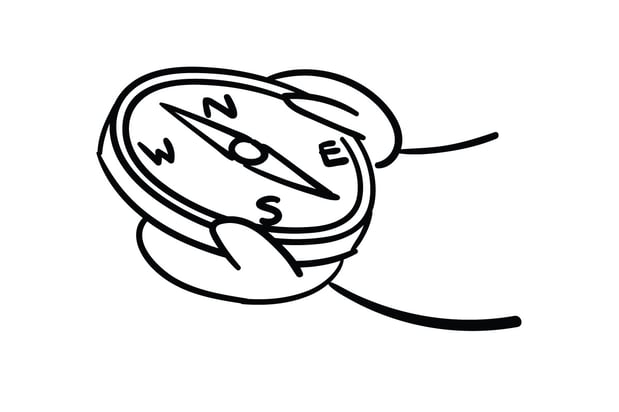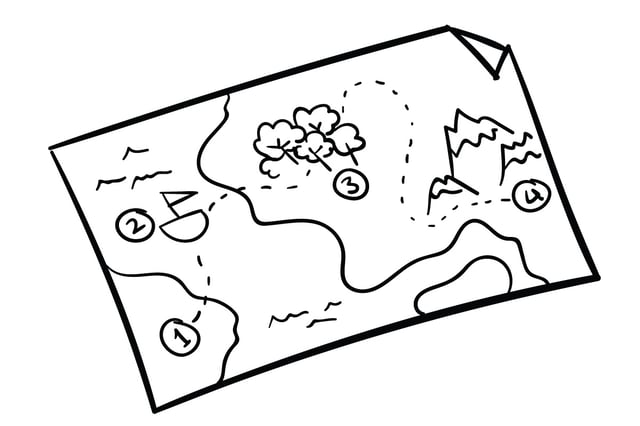Are you ready to talk about your organization's journey to becoming an innovator? Book a Meeting to learn about our innovation workshops.

As we discussed in a previous post, we recently looked at a variety of different organizations that have succeeded in their efforts to build innovation capability, and a number of common patterns emerged—foremost of which is a multi-year change journey with key waypoints along the path.
The next question, of course, is how did they get from point A to point B?
Despite sharing common waypoints, no two organizations took exactly the same pathways to get from one waypoint to the next. Each organization's own unique context informed its own approach. Fortunately, they did share similar ways to pathfinding that involved these three elements:
- A shared set of principles focused on demonstrating results
- An exploratory approach to learn their way into the right mix of activities
- An opportunistic mindset to maximize their unique context
Let’s take a closer look at the three pathfinding elements.
A Shared Set of Principles

The shared principle we saw again and again is this: To achieve culture change, focus first on real business problems to help uncover forces within the culture that are helping or hindering human-centred problem solving.
Then, based on these behavioral insights, identify organizational conditions that need to be fine-tuned to maximize momentum and mitigate resistance. Enhance project work with learning programs to create a common language and understanding, and provide an opportunity for hands-on practice with innovation and implementation methods.
Iterate to strengthen the fit between organizational need and solution and to align key stakeholders.
An Exploratory Approach

Whenever something new is introduced, unanticipated reactions should be expected, no matter how well intentioned or planned. The most successful organizations took an exploratory approach and were able to demonstrate progress quickly. Influenced by Agile practices, their planning horizons were short (3-6 months), and they rapidly iterated to create quick wins and learn their way into the right mix of activities.
An Opportunistic Mindset

The final element recognizes the organization's unique context and rewards an opportunistic approach to making progress. New champions emerge. Barriers are revealed and addressed. These organizations asked some specific key questions:
- In the next 3-6 months, what important but non-urgent projects are our teams working on that may benefit from new, innovative problem-solving approaches?
- Among executive sponsors, whose involvement will accelerate adoption? Who are other key stakeholders we need to involve?
- What organizational rhythms, like events, meetings or budgeting might we embrace for impact?
- What other learning programs in next 6 months represent opportunities for integration?
For these organizations, the opportunistic mindset shifted to a more intentional one as confidence grew and new possibilities emerged.
Journey With Intention

“If you don't know where you are going, any road will take you there.” – Lewis Carroll
In a rapidly changing world, the journey to innovation may be one of the most important ones your organization will embark on. But not just any path will get you there. Make sure you take the right steps along the way so that you can successfully build the kind of human-centered innovation culture that will drive your organization’s future.
Where are you in your journey?

We're prototyping an assessment tool around the four Journey to Innovator waypoints to make it easier for you to pinpoint where your organization might be in your journey in the moment. The assessment gives you a nice gauge for looking at not only where you are and want to go but also where you might risk running off the road or into a dead end.
Get in touch with us today to learn more.